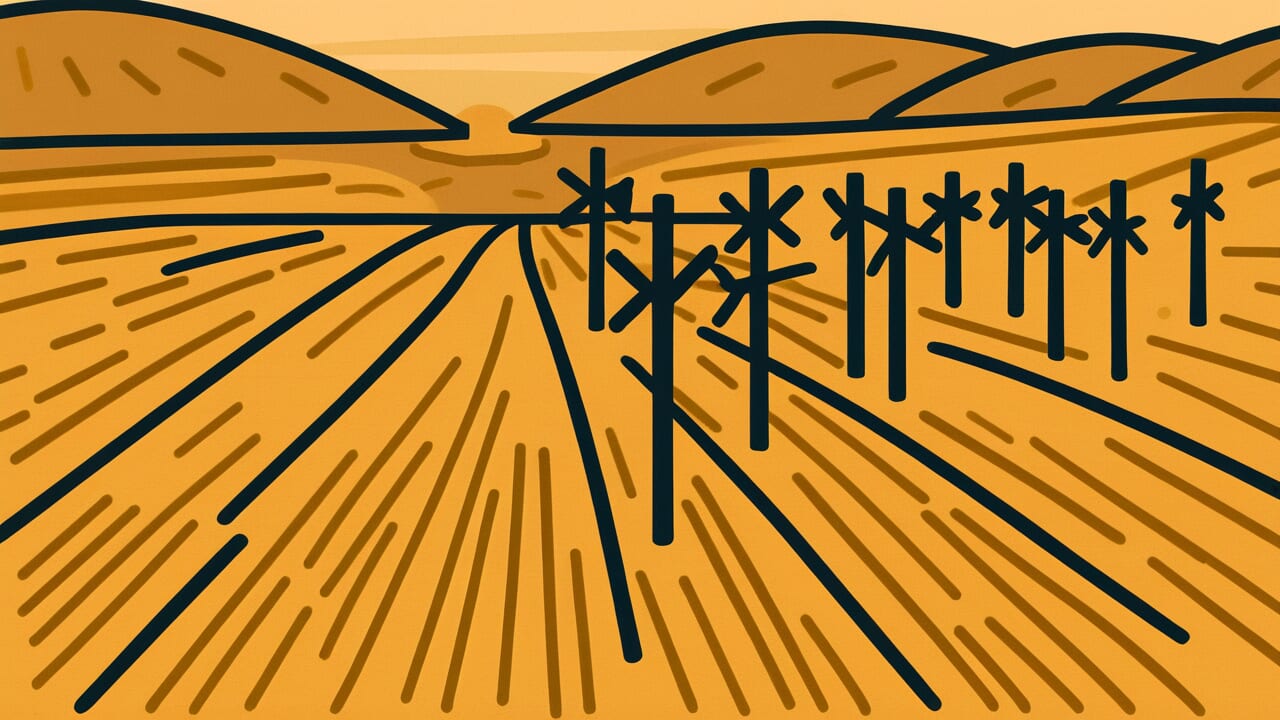How to Read “Even a thousand straws won’t make a pillar”
Wara senbon atte mo hashira ni wa naranu
Meaning of “Even a thousand straws won’t make a pillar”
This proverb means that gathering many weak things won’t create something strong. A single straw is so weak it’s practically useless.
Even if you bundle a thousand straws together, they’ll never gain the strength of a pillar that supports a house. This shows the fundamental difference between quantity and quality.
People use this saying when many low-skilled workers can’t match one talented person. It also applies when small efforts pile up but lack the fundamental ability to matter.
The proverb warns against chasing superficial numbers or scale alone.
Today, it guides us in team building, organization, and personal development. It teaches that raising individual quality matters more than simply increasing numbers.
It reminds us how important building fundamental skills truly is.
Origin and Etymology
The exact first written appearance of this proverb is unclear. However, its structure suggests deep connections to traditional Japanese building culture.
Straw was the most familiar agricultural resource for Japanese people. In rice-farming culture, straw was valued for thatching roofs and making rope or bags.
Yet each individual straw is extremely thin, soft, and breaks easily. It’s an inherently weak material.
Pillars, on the other hand, are the most important structural elements supporting houses. In wooden architecture, pillars bear the entire building’s weight.
They must withstand earthquakes and typhoons. That’s why builders chose hard, durable woods like zelkova or cypress for pillars.
This proverb likely arose from the fact that bundling a thousand straws could never fulfill a pillar’s role. Increasing quantity and improving quality are completely different problems.
This practical wisdom from construction sites spread as a lesson applicable to many human situations.
Japanese people brilliantly expressed the truth that essential strength can’t be compensated by quantity. They did this through contrasting everyday materials.
Interesting Facts
Straw actually becomes surprisingly strong when you weave or bundle it cleverly. Tightly braided straw rope was widely used for tying cargo in old times.
It could withstand considerable weight. Thatched roofs made from layered straw had excellent insulation and waterproofing. They lasted for decades.
Still, straw can never become a pillar. No matter how ingenious the technique, the material’s essential nature doesn’t change.
This proverb doesn’t deny straw’s usefulness. Instead, it shows that each material has its appropriate role.
Usage Examples
- Hiring many new employees is like “even a thousand straws won’t make a pillar”—one veteran is far more reliable
- Learning only superficial techniques is “even a thousand straws won’t make a pillar,” so you must solidify your foundation first
Universal Wisdom
Behind this proverb’s endurance lies a warning about “the temptation to compensate quality with quantity.” When facing difficulties, we tend to avoid fundamental solutions.
Instead, we try overcoming problems by increasing visible numbers or scale.
Why do people behave this way? Because improving quality takes time, is difficult, and sometimes painful.
Meanwhile, increasing quantity is relatively easy. It gives the immediate feeling of visible results. Gathering ten unskilled people seems easier than developing one person properly.
But our ancestors saw through this easy path’s ultimate futility. Supporting a building requires pillar-grade strength.
No amount of straw can fulfill that role. In life too, superficial accumulation won’t build the power you truly need.
This proverb resonates especially with modern people seeking efficiency and quick results. Social media followers, credential counts, networking breadth—numbers reassure us.
But they don’t guarantee real ability.
Human nature hasn’t changed. We still prefer easy paths today as in the past. And we’re still called to seek essential strength.
When AI Hears This
Bundling any number of straws won’t make a pillar because of a physical phenomenon called the “critical length law” in materials engineering.
In fiber-reinforced materials, collecting short fibers doesn’t produce strength because stress escapes from the fiber ends.
Let me explain specifically. When force is applied to short fibers like straw, stress escapes from both ends.
For fibers to bear force, they need distance to accumulate stress from ends toward center. This minimum necessary length is called “critical fiber length.”
The formula depends on the ratio of fiber diameter and strength to friction between fibers. For straw, this critical length exceeds several dozen centimeters.
But actual straw pieces are short and cut, so stress can’t fully transfer inside the fibers even when bundling a thousand.
Wood functions as a pillar because its fibers connect continuously. Long fibers transmit stress end to end and support loads throughout the structure.
For example, short-fiber carbon composite materials produce less than half the strength of long-fiber versions.
In other words, this proverb isn’t spiritual philosophy about “quality over quantity.” It accurately describes the scientific fact that collections of short elements have physical limits.
Old craftsmen grasped this essence of materials mechanics without experiments or calculations. Remarkable insight.
Lessons for Today
This proverb teaches modern people “the importance of foundational strength.” Increasing social media followers, acquiring credentials one after another, expanding your network—these have value.
But they alone don’t constitute real ability.
If you’re learning something now, try spending time understanding one thing deeply before spreading superficial knowledge. If you lead a team at work, focus on raising each current member’s ability rather than increasing headcount.
What matters is developing eyes to distinguish whether what you’re accumulating now is “straw” or “wood that becomes a pillar.”
Quantitative growth is visibly clear and feels satisfying. But what you truly need is qualitative growth.
Don’t rush. Growing one pillar takes time. But that single pillar will become the reliable strength supporting your life someday.
Starting today, why not take one step focused on quality rather than quantity?



Comments